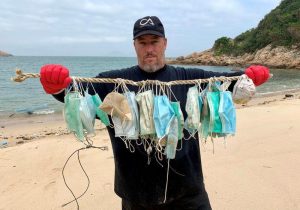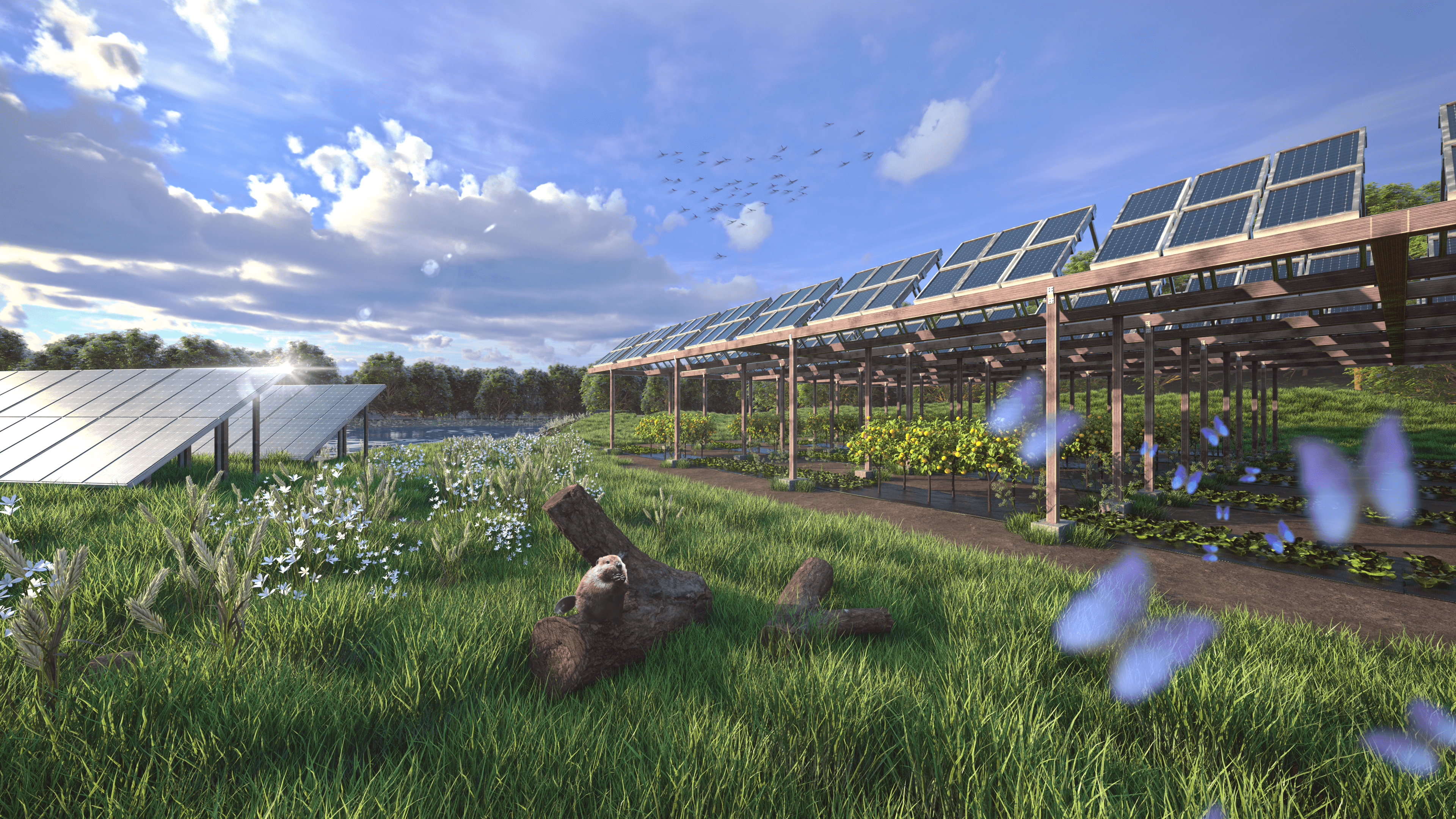- Social distancing doesn’t have to be boring — it can also help the planet. Here’s how.
- Coronavirus masks are clogging up Hong Kong’s beaches and nature trails.
- It sounds more than a bit odd, but the coronavirus lockdown may save lives by reducing air pollution.
- And more…
The coronavirus is a pandemic, so everybody needs to socially isolate. Here are five ideas on how to mindfully spend your time at home as we try to get through this very challenging time and preserve our health — and it’s a great idea to learn about climate change and engage in earth-friendly activities.
Read: Here’s are three books that will expand your knowledge of the climate crisis:
Walk: This comes with a caveat: As long as you stay at least six feet away from other people, you can enjoy the fresh air. (I walk around my neighborhood every evening, and my neighbors and I wave at each other from across the street.) Walking has got to be the most climate-friendly method of transport on the planet. Plus, it’s good for your mental and physical health.
Plant a garden: Whether you live on a farm, in a suburban home, or a tiny apartment, it’s possible to grow flowers, vegetables, herbs, or other plants. They are good for air quality, it’s calming, it’s relaxing, and you might just develop a green thumb if you don’t already have one.
Search “order seeds online” on your browser, and loads of sellers pop up. And if you really want to go crazy, here’s a bulk package of more than 1,000 seeds for just $10. Amazon will also deliver pots and potting soil, too, if you don’t have the space to plant directly into the ground. Big-city people: This might help a lot.
Support environmental charities. Speaking of Amazon, drastic times call for drastic measures. We can’t wait til Amazon switches entirely to an all-electric fleet of 100,000 vans, but right now, we all need to be indoors. So make your orders work to support environmental causes in order to offset those deliveries. Check out Amazon Smile’s environmental charity lists here, choose one, and every time you order, money is donated to the charity of your choice. Put your money to work.
Work on making your kitchen zero waste. Sara Goddard of Green That Life has written an article called, “Zero Out the Waste: 10 Easy Tips for a Zero Waste Kitchen.” Being indoors will give you a chance to think about how you can make your kitchen more environmentally friendly, such as reusing single-use items and using natural cleaning products.
 Hong Kong is a city of 7.4 million people, and the wearing of single-use facial masks has been prevalent during the coronavirus outbreak. But a large number of those masks are showing up on beaches and in parks because they weren’t properly disposed of. Environmental groups are now not only concerned about the extra waste, but also the spread of the virus.
Hong Kong is a city of 7.4 million people, and the wearing of single-use facial masks has been prevalent during the coronavirus outbreak. But a large number of those masks are showing up on beaches and in parks because they weren’t properly disposed of. Environmental groups are now not only concerned about the extra waste, but also the spread of the virus.
According to Reuters, Gary Stokes, founder of the environmental group Oceans Asia, said “he initially found 70 discarded masks on [a] 100m stretch of beach and when he came back a week later, there were more than 30 new ones.”
Conservation groups have been organizing clean-ups to dispose of the extra trash. Hong Kong, do the right thing.
Photo: Yoyo Chow/Reuters
It may initially sound controversial but stay with us. The coronavirus lockdown may actually save lives by reducing pollution due to factory shutdowns, reduced travel, and more. (See the examples of Italy and China in the story directly below this one.)
Forbes and France24 report that François Gemenne, director of The Hugo Observatory, which studies the interactions between environmental changes, human migration, and politics, pointedly says:
Strangely enough, I think the death toll of the coronavirus at the end of the day might be positive, if you consider the deaths from atmospheric pollution.
More than likely the number of lives that would be spared because of these confinement measures would be higher than the number of lives that would be lost because of the pandemic.
Gemenne went on to cite that 48,000 people die in France and 1 million people in China die annually because of pollution. The US death toll annually is estimated at around 100,000.
However, a big manufacturing push is expected in China, for example — and other countries will undoubtedly try to follow — to try to make up for economic losses, and this could increase emissions even more than before the big drop. So recovery packages need to include green energy and serious consideration for reducing climate change.
Here’s Gemenne in his own words:
The coronavirus is devastating Italy, but there is one positive environmental side effect of social distancing and lockdowns. The air quality has improved. And in Venice, for example, the lack of boat traffic and tourist overcrowding has resulted in clear canal water, so now fish can be seen. Swans are now making an appearance, and people are also claiming to see dolphins.
As a man named Jacob Schot said on Twitter, “Mother Earth is slowly recovering from us.”
Pierpaolo Campostrini, managing director for the Consortium for Managing Scientific Research on Venice Lagoon System, told ABC News:
The low turbidity of the water does not mean cleanliness. The transparency is due to the absence of sediment resuspension.
Campostrini also said it’s likely that air quality has improved since “every kind of pollutants decreased a lot,” but that a chemical analysis would have to be conducted to confirm this.
This also happened in China. According to CNN, the average number of “good quality air days” increased 21.5% in February, compared to the same period in 2019, according to China’s Ministry of Ecology and Environment.
One thing is pretty clear (besides the water and air): no people, and nature comes back fast. No fossil fuels, and pollution clears up quickly. So these lockdowns are evidence that governments can do something about a global threat. Rapid change is possible.
Gail Whiteman, director of the Pentland Centre for Sustainability in Business at Lancaster University, told CNBC:
This is the first time I have seen governments choosing humanity over economics in such a significant way — ever.
This is a ‘yes we can’ moment for the climate crisis.
After a week of lockdown… The canals in Venice are all clear and full of fishes. Kinda gives you the idea what will happen to Earth without Humans! pic.twitter.com/FVc7N8vmty
— TheSpaceAcademy.org✨🔭 (@ThespaceAcad) March 17, 2020
Here’s our weekly look at #fridaysforfuture protests from Twitter, but social distancing style. Fridays For Future Digital leads the charge:
We’re in a health emergency
We need to put community safety first
The climate crisis isn’t going on a break and neither are we
Join us in the #DigitalStrike by posting a picture with a sign
Tag @fridaysforfuture @fff_digital and #ClimateStrikeOnline
🎥: @joelthereporter pic.twitter.com/Ga9vNARPGk
— #DigitalStrike community (@fff_digital) March 20, 2020
Here’s Edgar in the US:
#ClimateStrike week 49.
Won’t be at my usual location for several weeks or months for obvious reasons. Today I took my picture next to of one of the 14 native trees I have planted at my local park
Doing what I can.@GretaThunberg #ClimateStrikeonline @fff_digital @FFF_USA pic.twitter.com/beRGBpfmJZ
— Edgar McGregor 🌎🌴 (@edgarrmcgregor) March 20, 2020
And here’s a family in Sweden:
#ClimateStrikeOnline Laholm Sweden 💚🌍 Today sitting on the big troll in our garden. #FridaysForFuture pic.twitter.com/q4I79syV7N
— Palle Nielsen (@PalleFloe) March 20, 2020
And finally, here’s Atlas in Turkey. He’s 13. Let’s take care of our kids’ future.
🇹🇷-Merhaba ben Atlas, 1 ay sonra 13 olacağım, korkuyorum. Korkum virüsten. Ben de evde dijital grev yapıyorum.
🇬🇧-Hi I’m Atlas, In a month I‘ll be 13 and I’m scared. I’m scared of the virus. I’m doing a digital strike.@fff_digital @GretaThunberg #StayAtHome #BuEvdeİklimGreviVar pic.twitter.com/RQqd6WLVWY— Atlas Sarrafoğlu🌍 (@AtlasSarrafoglu) March 20, 2020

Let’s end this week on a positive note with a look at Leafteasers, an innovative company in Utrecht, the Netherlands, that certifies nature-inclusive solar parks (NISPs). Leafteasers helps organizations that are adopting solar to integrate with nature. The company rightly believes that solar parks don’t have to be associated with poor landscape integration and ugly sites. In other words, solar and nature can coexist harmoniously.
Roel van Beusekom of Leafteasers says:
NISPCertified seeks to integrate the needs of the energy transition with the need to protect ecosystems and make sure the energy transition benefits all stakeholders. For Leafteasers, NISPCertified is a starting point for large-scale systemic change that we seek. We need to cool down the planet, restore ecosystems, and create the regenerative economy that we all want.
Leafteasers can provide consultations in order to achieve certification, connect the latest innovation and scientific knowledge to business practice, and then issue NISP certification.
Check out our past editions of Climate Crisis Weekly.
Photo: Markus Spiske/Unsplash
Read the full article here



